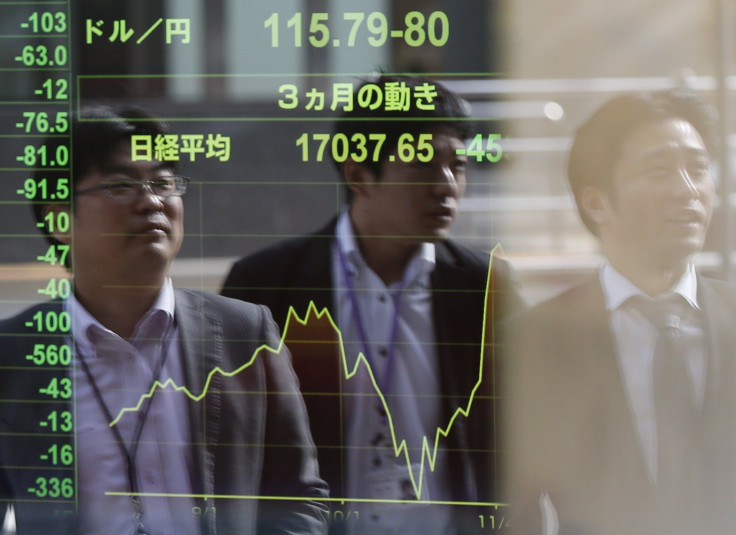Moody's Downgrades Japan's Sovereign Debt Rating

(Reuters) - Moody's Investors Service on Monday downgraded Japan's sovereign debt rating by one notch to A1, citing rising uncertainty over the country's ability to hit its debt-reduction goal.
The announcement briefly sent the yen to a seven-year low against the dollar and pushed 10-year Japanese government bond (JGB) futures down by 10 ticks.
The U.S. rating agency said the outlook was stable.
The downgrade came less than two weeks before Japanese Prime Minister Shinzo Abe seeks re-election at a snap poll where his stimulus policies and a decision to delay a second sales tax hike will be among the key campaign issues.
The jury is out over whether Abe's strategy will revive the economy and restore the country's tattered finances.
"This is particularly bad for Abe because the opposition can attack him for this before the election," said Hiroshi Miyazaki, senior economist at Mitsubishi UFJ Morgan Stanley Securities.
"There are concerns the Bank of Japan's quantitative easing and Japan's high household assets have made the government complacent on fiscal policy."
Moody's said that while Abe's decision to delay next year's scheduled tax hike could support the economy in the short term, it had made it more challenging for Japan to achieve its target of balancing its budget by 2020.
"Japan's deficits and debt remain very high, and fiscal consolidation will become increasingly difficult to achieve as time passes given rising government spending, particularly for social programs associated with a rapidly ageing population," the rating agency said.
Hours before Moody's announcement, Abe had stressed in a televised public debate that Japan remained committed to fiscal reform, and that the Bank of Japan's ultra-loose policy was not aimed at monetizing public debt.
But Moody's warned that the BOJ's efforts to achieve its 2 percent inflation target through aggressive money printing may eventually push up bond yields and raise government borrowing costs.
"Rising interest rates would increase expenditure and offset gains from revenue buoyancy," it said, adding that there was also uncertainty about how quickly Abe's structural reform efforts would bear fruit.
© Copyright IBTimes 2025. All rights reserved.





















